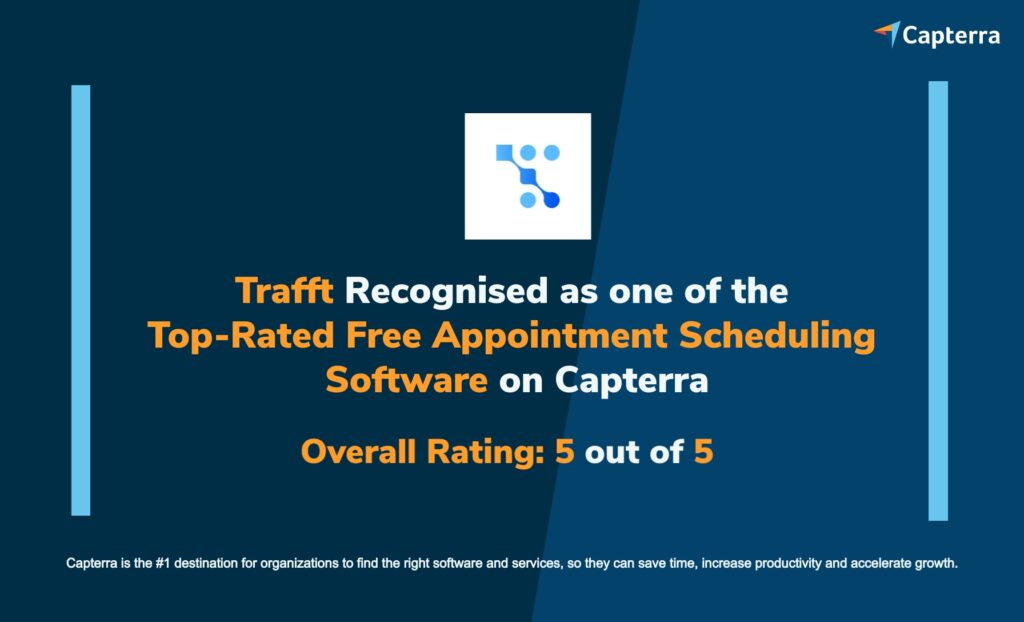Many people wonder what transformational life coaching even means. The bottom line is – it is something that is supposed to make the client’s life better. Who wouldn’t want someone who can accomplish that for them? This is why the popularity of transformational life coaching is soaring, and you can ride this wave!
Let’s look at people, for instance, who don’t feel accomplished enough. Their dreams didn’t come true, and they often have no purpose in their lives. As a result, they feel depressed, disappointed, and most of all frustrated.
The tremendous success of transformational coaching is dragging more and more people into the niche. Competition is harsh, and you need to be GREAT to succeed. You need to be confident persuasive, responsible, and ready to help. Your mission will not only be to change people’s mindsets but also their behavioral patterns.
The first and most important task is to identify the issues your clients have and to examine what is causing them. What stands in their way? Why are they not successful? Your answers will be the key to an amazing transformation that doesn’t take all that long.
That being said, transformational coaching will not only make you successful but also transform your own life while helping your clients.
What is Transformational Coaching?
Transformational coaching is a powerful and holistic approach to personal development and growth. It focuses on helping individuals make significant and lasting changes in their lives by addressing both their mindset and behavior.
But don’t forget – transformational coaching is a collaborative process where the coach and client work together to identify areas for improvement and develop strategies for positive change. It’s about helping clients unlock their full potential and live a more fulfilling and purpose-driven life.
What Does a Certified Transformational Life Coach Do?
Transformational coaches aim to help people improve and modify their personalities. Rather than listening to their problems, they dig deeper under the surface. They examine and dissolve any limitations in their behavior patterns. If there is a particular emotion that keeps people stuck and unmotivated, it is the job of the transformation coach to identify it.
Transforming people with life coaching, however, is a challenging assignment. The task at stake is convincing somebody that they are not what they seem and that there is a better version of themselves that needs to come out. This means that transformational life coaching deals with every single aspect of personal development. That could be, for instance, a limiting belief or an unachievable goal.
It is not about how the transformational coach sees the coaching clients. It is about how they see themselves.
Most people land on transformational coaching because they want to help and empower others. And each time a client unleashes their inner wisdom and starts living the life they always wanted, the coach gets rewarded as well.
What is The Difference Between Life Coaching and Transformational Coaching?
Life coaching and transformational coaching share some similarities, as both aim to help individuals improve their lives and achieve personal growth. However, they differ in their scope, focus, and the depth of the changes they seek to bring about.
Scope of coaching
Life coaching typically has a broader scope and can cover various aspects of a person’s life, including career, relationships, health, and personal development. Life coaches help clients set and achieve specific goals and create a more balanced and fulfilling life.
Transformational coaching often has a more profound and all-encompassing focus. It aims to create fundamental and lasting changes in a person’s mindset, behavior, and overall life experience. It delves deeper into personal growth and self-discovery.
Goals and changes
Life coaching primarily focuses on achieving specific, tangible goals. These goals could relate to career advancement, weight loss, time management, or relationship improvement, for example.
Transformational coaching goes beyond achieving external goals. It seeks to transform the client’s core beliefs, values, and overall perspective on life. The emphasis is on profound, internal shifts that lead to personal growth and fulfillment.
Time frame
Life coaching often operates within a relatively short time frame and is goal-oriented. Clients work with life coaches to make measurable progress in a specific area of their lives.
Transformational coaching can be an ongoing and more in-depth process. It recognizes that deep personal transformation may take time and involves ongoing self-discovery and development.
Tools and techniques of transformational and life coaches
Life coaches use a variety of tools and techniques to help clients set and achieve goals, such as action plans, time management strategies, and accountability systems.
Transformational coaches may use tools and techniques from fields like psychology, NLP (Neuro-Linguistic Programming), and mindfulness to facilitate inner transformation. They work on shifting beliefs, emotions, and behaviors at a deeper level.
Client’s needs
Life coaching is well-suited for individuals who have specific goals they want to achieve and are looking for guidance and support in the process.
People who are looking for more profound changes in their lives, want to discover their life’s purpose, and are open to deep self-exploration often seek transformational coaching.
Transformational Coach Roles
- Setting customer’s goals straight and eliminating their fears
- Helping them grow and improve by defining their life’s purpose
- Transforming goals and wishes into feasible strategies
- Keeping them consistent and on track, with the changes, they want to do
- Updating the plan according to the situation
- Encouraging them when they want to resist or give up
Is a Career in Transformational Coaching Appropriate for You?
For starters, both transformational coaches and life coaches need an array of quality social skills. They must be experienced in different types of coaching. As a result, they develop problem-solving techniques that apply to different customers. Investing in a career like this requires investing in yourself – the more you develop, the more able you will be to help others.
Secondly, you’ll need to listen effectively to what people are saying. You need to understand problems in detail and reveal hidden truths the client is not willing to talk about. Sometimes, all you’ll have to work with is their voice tonality and choice of words.
Present yourself as a reliable and trustworthy person. Show support and empathy, and tell clients openly that progress doesn’t come easy. They will need you to be there from the very beginning, but only if you establish a relationship based on trust. Treat their stories with respect, and build up the process as you go. Set realistic goals, and empower them at different stages. Most of all – don’t get discouraged if the clients don’t succeed as fast as you want them to.
Remember – you are not there to solve their problems. It will get difficult at times, but you must preserve a clear mind and a goal-oriented attitude. The client is the one who has the solution, and you should only guide him in the right direction.
Let’s see the most important skills you’ll need as a transformational coach:
Observation
You are an explorer looking to identify behavior patterns and blockages. You should monitor the client from the very beginning, and stay alert for things that have not been said. Words are your best clues, but look out for body language and facial expressions too. Soon enough, you will be able to understand what your clients are feeling.
Of course, this is not something you can learn overnight. The more people you work with, the better you will understand the variety of problems they deal with. You will then attack the saboteurs at their very core, and lead clients throughout their journey.
Reliability
As a transformational coach, you need to guide clients to the point where your services are no longer required. This, of course, can take much longer than planned. Regardless of their motivation, people happen to back out and lose their path, and that’s where you are most needed. You will hear all sorts of excuses, but you should remain strong and determined.
Also, there is no guarantee that you will like all clients and conversations. You won’t always feel comfortable asking tough questions and assessing difficult situations. And yet, this is the moment when clients need to trust you the most.
Luckily, all of this goes away with the first progress a client has made. Once they see you are right, they will be less resistant. They will believe that their transformation is something possible and tangible.
Confidentiality
To be able to do your job right, you will need clients to open up and trust you. The easiest way to show them that they are in a safe place is to listen to what they say.
Plan each session, and lead clients to talk about literally anything, including topics they are afraid of. Don’t criticize them, but assess carefully what they are saying. Be open and set things into perspective, even if it doesn’t seem easy. They should know that it is possible to transform their personality, but also that this isn’t as easy as it seems.
Staying on top of things
If you feel you are making progress, find a way to show your clients. This will help keep them encouraged and motivated, even in times when they are not that optimistic. External challenges will stand in your way, but you need to soften their impact on the process.
Explain by pointing out success stories and experiences other clients had. A real-life solution to a problem is better than any lecture on what needs to be done. Therefore, check your database and see which cases apply – your experience will teach you how to deal with any situation.
Learn and develop yourself. Your job is not limited to meeting clients and talking to them. As a life coach or a transformational coach, you need to position yourself on the market with an understanding of the matter. Next, you’d need a proper marketing plan and a social media strategy.
Transform Scheduling Chaos into a Seamless Process
If you’re looking for the best coaching scheduling software, Trafft is everything you’ve dreamed of and it’s tailored just for you.
Trafft goes beyond the basics, offering a wide range of powerful features designed to streamline scheduling, grow your coaching business, and enhance the client experience. Here’s how Trafft transforms your booking process:
Key features
Efficient Scheduling: Trafft’s platform is designed to minimize scheduling errors, ensuring that your coaching sessions run smoothly without any no-shows or double bookings. You can rely on Trafft to keep your schedule organized and efficient.
Advanced Coaching Features: Trafft offers a suite of advanced features that cater to coaching businesses. Enjoy support for multiple locations, multi-language capabilities, recurring appointments, and group bookings. You can easily reschedule sessions, set up reminders, and customize booking forms to match your coaching services.
Integration Power: Trafft seamlessly integrates with popular tools like MailChimp, Google Analytics, Stripe, PayPal, and Zapier. Plus, it provides native integrations with Zoom and Google Meet for scheduling virtual coaching sessions. This level of integration simplifies your workflow and enhances your coaching services.
Business Insights: Trafft provides an insightful business dashboard that helps you gather essential metrics. These metrics are invaluable for making data-driven decisions and improving your coaching practice.
Enhanced Customer Experience: Take notes on your clients to personalize their coaching experience. This feature allows you to build stronger relationships with your clients and better understand their needs.
Secure Payments: Trafft’s integrated payment processing ensures that you always receive timely payments, whether it’s after the coaching session or in advance. This feature is crucial for managing your finances and reducing the risk of no-shows.
Affordable Pricing: Trafft understands the needs and budgets of coaching businesses. It offers a FREE plan for up to 5 members, making it accessible for small coaching practices. Paid plans start from just $29 per month, allowing you to scale as your coaching business grows.
Top Ratings: Trafft is highly rated by users, earning a 5/5 on Capterra, 4.7 on G2, and excellent ratings on TrustPilot and GetApp. Coaches like you trust Trafft for their scheduling needs.

Don’t wait any longer; sign up for Trafft for free today, transform your scheduling struggles into an efficient process, and experience why it’s the best scheduling solution for coaches.
It’s time to supercharge your coaching practice and provide your clients with a seamless booking experience. Your transformational coaching journey starts here with Trafft.
What Does it Take to Be a Great Transformational Life Coach?
This is probably one of the most rewarding careers you can have. At the same time, it falls within a highly competitive niche followed by rapid and massive changes. If this sounds like something you would like to do, keep the following things in mind:
Do you want to specialize in a particular niche?
The life coaching niche is important enough to determine the entire trajectory of your career.
The same as with a life coach, a transformational coach has multiple niches to choose from. Any activity related to helping people transform themselves can qualify as an appropriate niche.
- Mindset transformational coaching. Many people argue, that only permanent changes are real changes. As a transformational life coach, you can take this premise and help people make changes that will last.
- Business transformational coaching. In this case, you’ll need to identify issues that hold people back professionally. You should guide them towards learning more or solving problems.
- Body transformational coaching. Reading this, you probably thought of fitness or nutrition, and you were right. Yet, this type of transformational life coaching can help people accept their sexual preferences, emotions, or fears.
The training and certification of a transformational coach
Technically, it is very possible to label yourself and work as a life or a transformational coach without formal education. Some of the best-known gurus and life coaches don’t have transformational life coach certification.
In a way, the transformational life coaching industry regulates itself. Nonetheless, coaches are expected to invest in themselves and learn, to do their job properly.
We need to assume, of course, that most potential clients will be after someone who is trained and certified to help them. This would also require the necessary training to be able to assess and modify willpower.
It’s expected of you to know human psychology and tackle matters on an intellectual level. Transformational coaches are the only experts in the niche that can improve intellectual results. As a result, they often make quicker and more important breakthroughs than in any other session.
Most life coaching experts opt for ICF (International Coaching Federation) certification and accreditation. They are provided comprehensive education on a variety of topics and training methods. The institution is very well-known and respected. This makes the possibility of attracting transformational life-coaching clients even bigger.
The importance of emotional intelligence
Of all the things that are important for a transformation coach, emotional intelligence deserves a top spot. These professionals don’t only need to know their life coaching client dreams but also understand them.
Odds are great that a certified life coach has also lots of experience to share. Therefore, they’d offer several ways to heal clients’ personalities and ensure a sustainable focus on what matters. If they have the skills for it, transformation life coaching certification is just a formality.
As an emphatically and emotionally intelligent person, a transformation coach creates a safe hub for his clients. Here, they can tell their stories and embrace change from somebody they trust. For the certified transformation life coach, this means constant development and learning to be able to help others.
The transformational coaching techniques you should adopt
If you are sure this is a career for you, you should adopt an array of transformational coaching techniques that will help you excel in what you do. We’ve gathered tips from a few prominent scientific studies to assist you with this.
Neuroscience knowledge
As you know, neuroscience studies the human brain as well as all parts of the nervous system.
This is one of the most advanced sciences in recent years, and transformation coaches often rely on it to be able to help their clients. These are the techniques transformational coaches work with:
- Self-awareness
- Resilience
- Empathy
- Mindfulness
- Motivation and optimism
- Stress management
- Critical judgment
Application of positive psychology
Positive psychology hasn’t been around for that long, but it is the most prosperous branch of science. The reason is, that it provides a critical and even philosophical approach to observing one’s mindset. In a nutshell, it asks people to focus on the good things instead of the bad ones.
Experts in positive psychology break happiness down into three dimensions that require improvement. These are a meaningful life, a pleasant life, and a good life.
Motivational interviewing & counseling
Motivational interviewing applies when a life-coaching client identifies an addiction. In recent years, however, it has been used in different areas of public health and health care and leads clients through a long but safe path of change.
Cognitive behavior
Cognitive behavior is a transformational coaching technique that helps clients reprogram the way they think. The best psychologists in the branch believe that our actions are driven by the way we think, and the feelings that we have.
Flexible treatment and therapy of this kind are very useful for a coaching business. You can apply it in almost any situation, as it tackles ingrained thinking patterns to improve the results of our actions.
NLP (Neuro-linguistic programming)
NLP enables you to program clients’ mindsets. The tool you have available, however, is only the language they use.
By language, we mean the things they are saying and thinking. it is based on the premise that everything that happens to people, internal or external, can trigger feelings and be a cause of a particular action.
10 Questions Transformational Coaches Should Ask
Clients need time to open up and tell you what their problem is. Therefore, you need to have a set of transformational coaching questions that will provide you with key information from the very beginning.
The answers to the following 10 questions will help you customize and plan sessions for each of your clients.
- What is your ultimate goal or biggest dream?
- Please name the three things you’d like to change about yourself
- Why do you think these changes are necessary?
- Are you living in sync with your values, and why not?
- What does the best and most satisfying day for you look like?
- Assuming you’re about to die now, what would you regret the most?
- What gives you the most energy?
- How should your life look, and what is holding you back?
- Name a job you’d do every day, even if no one is paying you for it.
Why are transformational coaching questions so important?
Seeing a transformational life coaching client eliminate his problems and become a better person, you are growing too. The job of a transformational coach is not just an activity that pays off. It is a way of life, and it helps coaches overcome their own wrong beliefs and find inner peace.
Embarking on a journey like this will enable you to:
- Get to know yourself and define your values and desires.
- Come to peace with who you are.
- Overcome your fears and insecurities
- Master the skill of helping others and helping yourself
- Get rid of the victim-based and diminishing mindset in difficult situations
- Help people with your spiritual wisdom
- take action and empower yourself, as you do with other people
FAQs About Transformational Life Coaching
1. What is transformational life coaching, and how is it different from traditional life coaching?
One kind of coaching that tries to assist people in making important life changes is transformational life coaching. Transformational life coaching is more holistic and focuses on helping people modify their thought patterns, actions, and beliefs to bring about sustainable change, as opposed to standard life coaching, which places more emphasis on specific goals or outcomes.
2. What kinds of issues or challenges can be addressed through transformational life coaching?
Career transitions, marital problems, health and wellness objectives, personal growth and development, and spiritual inquiry are just a few of the difficulties and obstacles that can be addressed through the use of transformational life coaching.
Also, it can assist people in overcoming restrictive attitudes and habits that may be preventing them from reaching their full potential.
3. What is the process of transformational life coaching, and how does it work?
An initial consultation or assessment is usually the first step in the transformational life coaching process. During this time, the coach and client get to know one another and assess whether they are a good fit.
The coach will then collaborate with the client to determine their goals, values, and beliefs to create a coaching strategy that is unique to them. To assist the client in achieving their goals, sessions may combine discussion, contemplation, goal-setting, visualization, and other strategies.
4. How long does it typically take to see results from transformational life coaching?
Depending on the person and their particular goals, the time it takes to experience results through transformational life coaching can vary. While some clients could see major improvements after just a few sessions, others might need more time and assistance.
Nonetheless, transformational life coaching typically aims to bring about long-lasting change, and clients can anticipate outcomes that continue to materialize over time.
5. Can anyone benefit from transformational life coaching, or is it only for people facing specific challenges or transitions?
Although everyone can gain from transformational life coaching, it works especially well for people who are going through big life transitions, is facing difficulties or barriers, or are looking to make significant changes in their lives. It can also be useful for people who are seeking better clarity, purpose, and direction when they feel lost or unfulfilled.
6. What kind of training and certification do transformational life coaches typically have?
Life coaches who specialize in transformational coaching often have a background in coaching, counseling, psychology, or a related discipline. They have also gone through specialized training and received accreditation in this area.
Additionally, they might have extra training or certifications in particular methods or modalities, such as energy healing, positive psychology, or mindfulness.
7. What are some common transformational coaching techniques or tools?
Visualization, journaling, meditation, goal-setting, affirmations, and mindfulness exercises are a few common tools and strategies utilized in transformational life coaching.
To help clients obtain a deeper understanding of their values, strengths, and areas for improvement, coaches may also use a variety of evaluation techniques and exercises.
Ending Thoughts on Transformational Life Coaching
There are many benefits to being a certified transformational coach. It is an admirable career that makes you the favorite person among your friends’ circle, family, and the entire community. At the same time, it is a great way to adopt new skills and a job you would be doing with passion and compassion. In short, it helps you make an impact on people’s lives and be remembered for it.
And yet, being successful in a niche like this requires effort and knowledge. You should master all fundamental elements of behavioral science, and base your work on knowledge and experience. You want clients to trust you and rely on you in their most difficult moments.
Last but not least, transformation coaching is a business that can generate some serious profits. You need the right tools and marketing strategies to impose yourself on the competitive market.
Hungry for more?
We have just what you need! Dive into additional resources about life coaching and gain more knowledge:
- The Most Successful Life Coaches You Can Learn From
- What To Include In Your Life Coaching Intake Form
- Useful Life Coaching Contracts to Use (8 Templates)
- How Much to Charge for Life Coaching: The Fees You Deserve
- Coaching Scheduling Software: Top 7 Picks & In-Depth Reviews
- The Best Coaching Apps to Take Your Business to The Next Level
- How To Get Clients As A Life Coach For Your Coaching Business



